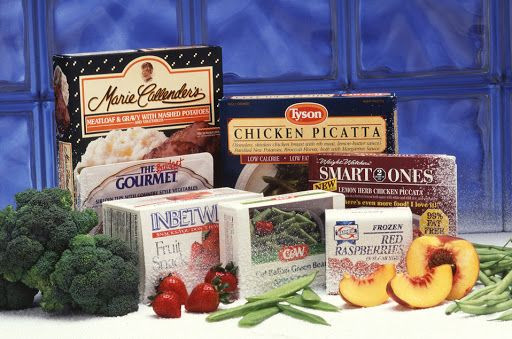Coronavirus US News: Meat Supply At Risk But New Challenges Arise To Keeping Plants Open
KEY POINTS
- Food industry workers warn meat shortages will break the food supply chain
- Food processing plants are closing because of employees positive for COVID-19
- Workers are asking better safety measures against coronavirus to curb this supply problem
- Trump will sign an executive order to keep processing plants operating
Meat supply in America risk a shortage that could break the food supply chain if safety measures for plant workers are not implemented, a top meatpacking union warned Tuesday.
Marc Perrone, the leader of the United Food and Commercial Workers International Union, said apart from paid sick leave for those who contracted COVID-19, workers also need daily tests and access to personal protective equipment.
"Simply put, we cannot have a secure food supply without the safety of these workers,” Perrone said. "We share the concern over the food supply." Perrone stated that both state and federal leaders need to work together to deal with these new challenges.
His warning comes as the chairman of Tyson Foods, John Tyson, also addressed the issue. After his company temporarily shut down its meat processing plants in Indiana and Iowa, to ensure its workers' safety against the spread of coronavirus, Tyson said grocery stores might soon run out of essential supplies like beef, chicken and pork.
"As pork, beef and chicken plants are being forced to close, even for short periods of time, millions of pounds of meat will disappear from the supply chain," Tyson wrote. "As a result, there will be limited supply of our products available in grocery stores until we are able to reopen our facilities that are currently closed."

Other plants and slaughterhouses across the states have also closed as some of its workers tested positive for COVID-19. Reports revealed more than half of the coronavirus cases in Green Bay, Wisconsin, come from three meat processing plants.
At Brown County, 503 COVID-19 cases are workers or linked to workers of JBS USA, American Foods Group, or Salm Partners. Some 145 staff of the American Foods Group also tested positive for coronavirus.
Officials from the Centers for Disease Control and Prevention, along with county and state inspectors visited these facilities, but JBS' management decided to shut down their plant Sunday.
Meanwhile, Tyson also ran full-page advertisements of his warning in dailies like The Washington Post and The New York Times. The chairman said his company is pushing to strike a balance between its responsibility to provide food to the country and the safety of its workers.
The company employs over 100,000 staff, a few of whom told CNN it was impossible to practice social distancing inside the processing plants.
"This is a delicate balance because Tyson Foods places team member safety as our top priority," he said.
Tyson Foods did daily sanitation even before COVID-19. The company ramped up its safety measures to include taking the temperatures of its workers and wearing face masks in all of its plants. However, Black Hawk County Sheriff Tony Thompson visited Tyson's Waterloo plant April 11 to discover the safety measures are not consistently enforced and implemented.
The chairman's statement comes as President Donald Trump said he will sign an executive order, backed by the Defense Production Act, to keep processing plants open despite the risks to its workers.
Advocates of animal welfare, however, criticized Tyson's latest statement while pushing for a switch to vegan meat.
"Just as disingenuous as it has been for some meat plants to blame low-paid workers for their living conditions, Tyson Foods, which slits the throats of frightened animals every day that it operates, now has the gall to seem worried about "depopulating" — aka killing," the People for the Ethical Treatment of Animal (PETA) wrote.
Just as disingenuous as it has been for some meat plants to blame low-paid workers for their living conditions, Tyson Foods, which slits the throats of frightened animals every day that it operates, now has the gall to seem worried about "depopulating" — aka killing.
— PETA (@peta) April 27, 2020
How can Tyson Foods fix its problems entirely?
— PETA (@peta) April 27, 2020
By switching its plants to producing the #vegan meat that it's already selling instead of slaughtering animals.
Meanwhile, livestock analyst Dennis Smith said meat production has decreased by 25% since the pandemic.
"We've just completed our third week of reduced slaughter and production," he told NBC News. "My guess is that about one week out, perhaps around May 1, shortages will begin developing at retail meat counters."
© Copyright IBTimes 2024. All rights reserved.





















